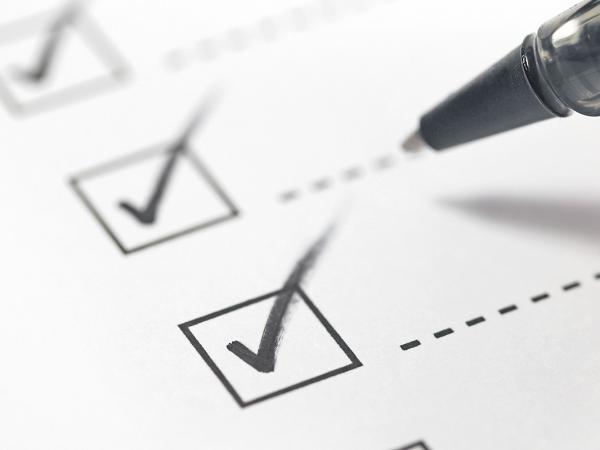Changing jobs/work changes
On this page, we look at whether you should follow the form P45 procedure or the starter checklist procedure when you make changes to your work situation. We tell you what process you should follow when you leave one job and start another, to try to ensure that you pay the correct amount of tax.

Content on this page:
Starting a new job
For employees there is a procedure in place when starting a new job, which helps ensure PAYE continues to work on the correct basis, as far as possible. Your new employer must follow a new starter process which normally involves them gathering information from you. Depending on your circumstances, one of two things will need to happen:
- you will need to give your new employer a P45, or
- you will need to complete a starter checklist and hand this to your employer.
We outline each process below to help you understand which will apply to you.
Form P45
If you are leaving one job and starting another job, it is likely that you will follow the form P45 process.
When you leave a job, your old employer should complete form P45. Form P45 shows your total pay and tax to date in the tax year, and the tax code your employer used.
A form P45 has four parts. Your employer sends the information in part 1 to HMRC immediately or as soon as possible after the last pay date. Your old employer should give you the other three (parts 1A, 2 and 3) as soon as possible.
When you start your new job, if you have a form P45 from a previous job, or from the DWP if you were receiving taxable state benefits (a P45(U) for example), you should give parts 2 and 3 to your new employer. This enables your new employer to see your previous pay and tax figures, to implement the same tax code you had in your previous job and continue to deduct tax on the correct basis.
If you do not start a new job but start to claim benefits, you should give parts 2 and 3 to the Jobcentre Plus office instead.
You should keep part 1A of your P45 for your own records.
If your P45 shows that at your last job you were taxed on an emergency code, your new employer will continue using that emergency code until HMRC issue a new code number.
Starter checklist
If you do not have a form P45, your new employer should ask you for a starter checklist or complete a starter checklist. This allows your new employer to implement an emergency tax code process – this enables them to pay you without a proper code in place. It is important to complete the starter checklist as accurately as possible or you may end up paying too much or too little tax.
Your employer needs to know your employment history for the current tax year. They also need to know whether you have a student loan and if so, whether you have a Plan 1, Plan 2, Plan 4, postgraduate loan, or a mixture of types of loan. Completing the starter checklist will provide this information to your employer. Your employer may therefore ask you to complete a starter checklist to collect this information, even if you have already given them a P45.
Your new employer must get this information directly from you, not, for example, third hand from your manager. They must keep a record of the facts and how they got them.
You should keep a copy of the information that you provide to your employer in case, later, there is a dispute.
There is guidance, including examples, about how to complete the starter checklist on our page about the starter checklist.
There is guidance about how to answer the student loan questions on the starter checklist on our page annotated starter checklist: student loans.
Changing jobs
It is especially important that you provide your employer with a completed starter checklist or form P45. If you do not provide this information, you could end up paying too much tax.
Leaving a job
If you are leaving a job, but not starting another one (for example, because you are going to study or are going travelling), make sure you get a form P45 from your employer when you leave. You may need it to claim any tax refund you are owed.
Claiming benefits
If you are starting to claim jobseeker's allowance or employment and support allowance after leaving your job, you need to give your form P45 to the DWP. They will then put the details from your earlier paid work onto their system. If you are due a tax refund from your paid work, you will not get this refunded until the earlier of:
- ceasing to claim jobseeker's allowance or employment and support allowance – in which case your refund comes from Jobcentre Plus, and
- the end of the tax year (for continuing claims).
If DWP does not issue the refund automatically, you should contact HMRC to claim it.
Working part-time
If you are working part-time, you need to make sure that you are not overpaying tax, and if you are, then remember to claim a tax refund.
The first thing you should do is check that your PAYE code is correct on your payslip: this will show what tax allowances you are receiving.
If you have two or more jobs, neither of which pays enough to use up your personal allowance, you can contact HMRC and ask them to split your personal allowance between the jobs. This will mean that you do not pay too much tax during the tax year. You can read more about this on our page on multiple jobs.
Working and studying at the same time
If your employer is paying for you to study to help you with your current role, you may be exempt from tax and National Insurance contributions on that sponsorship income. You can find more information on what conditions need to be met for employer-sponsored courses on our page looking at training.



